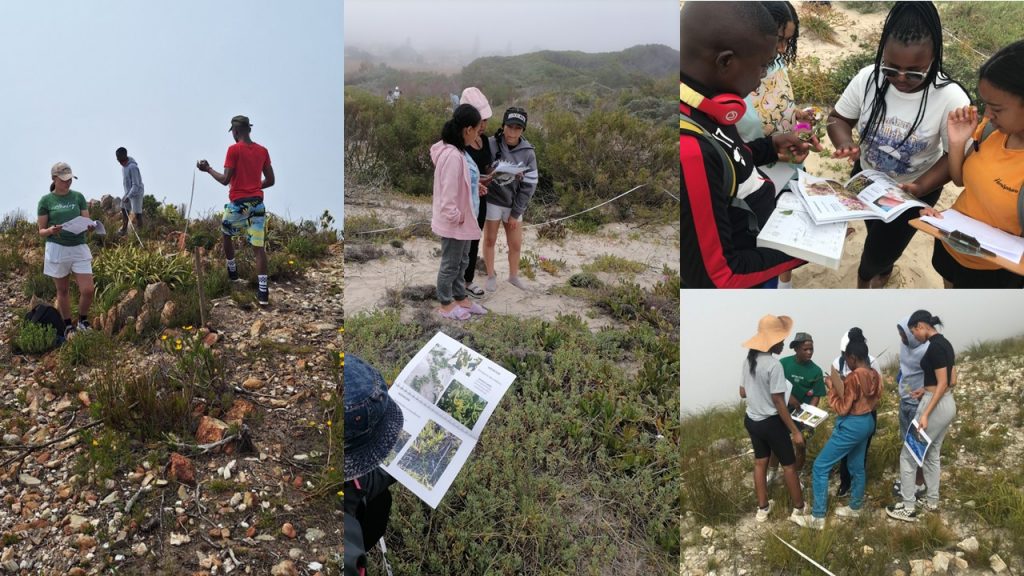From 4 to 6 October 2024, Iimbovane hosted an environmental science camp for Grade 10 learners from Umyezo Wama Apile (Grabouw) and Swartberg Secondary School (Caledon) which took place in Kleinmond. The camp was tailored for the Grade 10 Life Sciences curriculum, and aimed at reinforcing concepts such as ecological niches, the role of abiotic factors such as temperature, altitude, soil and moisture, as well as the adaptation of plant species to their respective ecosystems.
The learners participated in a study whereby they compared plant species richness, growth forms, family diversity, and leaf shapes of the plants of the coastal and mountainous areas in Kleinmond. The study took the group to the summit of Jean’s Hill (189m) and to Kleinmond beach where the learners could explore both environments and how explored the unique plant diversity of both environments.
Through formulating and testing their own hypotheses, the learners were able to analyse their data. Additionally, working in groups encouraged collaboration, with learners discussing their observations and comparing data.
On Saturday afternoon the learners visited the Harold Porter Botanical Garden where they hiked to the Disa Kloof waterfall and enjoyed a picnic, while immersing themselves in the natural environment. The garden brags with a rich plant life and the learners could observe a diverse range of plant species from various ecosystems in just one location.
The last stop was at the Stony Point Nature Reserve (Betty’s Bay), where they received a presentation on the importance of the protection of the African penguin (Spheniscus demersus), a tour of the penguin colony and snippets into the day in the life of a nature conservator.
By the end of the camp, the learners not only gained practical research skills but also to harness their ability to work collaboratively, analyse data, and to present their findings.
Although a few encounters with a troop of Chacma (Cape) baboons (Papio ursinus) resulted in screaks and screams, the learners also got the chance to see these animals from up close and to discuss the topic of human-wildlife conflict, especially in urban areas.
One of the facilitators, Ronewa Phalandwa, who is currently studying towards her Postgraduate Certificate in Education (PGCE) commented:
“I plan to incorporate more field trips and hands-on learning in my teaching methods next year as I believe they can really engage learners and help them to understand the subject matter better.”
